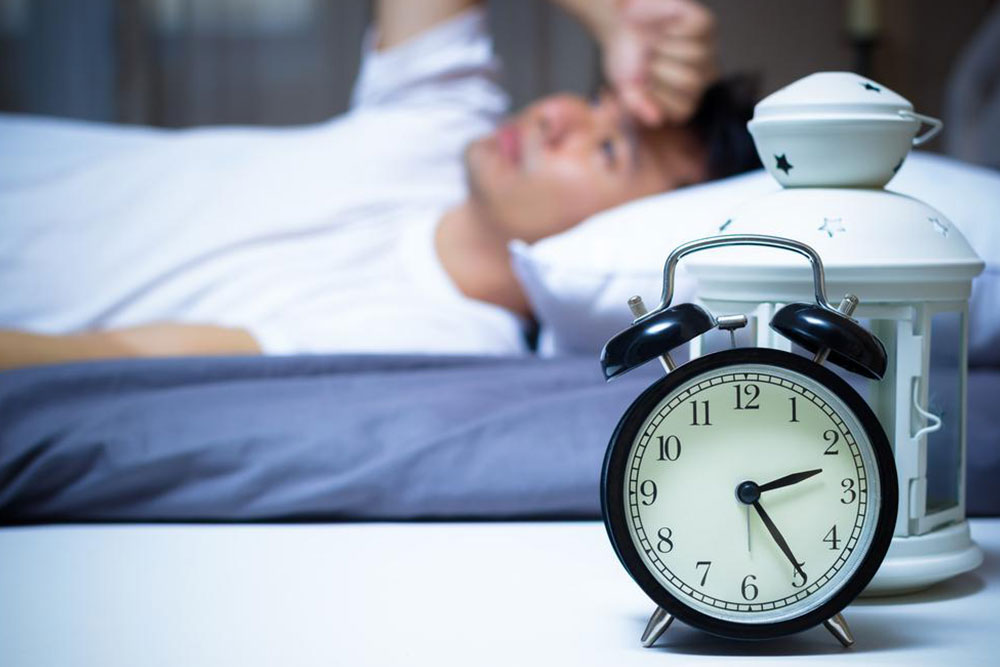Comprehensive Guide to Identifying and Managing Common Sleep Disorders and Their Causes
This comprehensive article explores common sleep issues, their signs, root causes, and various types of sleep disorders. It provides insights into recognizing symptoms early and offers guidance on effective management strategies. Whether dealing with insomnia, sleep apnea, or parasomnias, understanding these conditions can significantly improve sleep quality and overall health, emphasizing the importance of timely medical evaluation and lifestyle modifications.

Comprehensive Guide to Identifying and Managing Common Sleep Disorders and Their Causes
Sleep plays a vital role in maintaining overall health, cognitive function, and emotional well-being. However, millions of individuals worldwide experience various sleep problems that can significantly impair their daily lives and health. Understanding the root causes of these sleep issues is essential for effective management and treatment. From restless nights caused by medical conditions to sleep disturbances resulting from lifestyle factors, identifying symptoms early can lead to better interventions and improved sleep quality.
Signaling Signs of Sleep Disorders
Recognizing the warning signs of poor sleep is the first step towards addressing these issues. Common symptoms include persistent fatigue, irregular breathing during sleep, daytime sleepiness, and behavioral abnormalities during sleep episodes. The sooner these indicators are identified, the more effective the treatment options become.
Key Symptoms to Watch For
Persistent Fatigue and Unrefreshing Sleep
Feeling constantly exhausted even after a full night’s rest is a significant indicator of disrupted sleep quality. Normally, restful sleep involves cyclical patterns of deep and light sleep, both of which are essential for restoring energy levels. If you frequently wake up feeling sluggish, irritable, or mentally foggy, your sleep pattern might be compromised, potentially due to underlying health issues or sleep disorders.
Breathing Anomalies During Sleep
If your bed partner reports loud snoring, choking sounds, or pauses in breathing during sleep, it may point towards sleep apnea, a serious condition requiring prompt medical evaluation. Sleep apnea causes intermittent oxygen deprivation and fragments sleep cycles, leading to daytime fatigue, headaches, and even cardiovascular risks if untreated.
Unusual Daytime Napping Habits
Experiencing frequent urges to take naps or feeling excessively sleepy during the day despite adequate sleep the night before suggests underlying sleep regulation issues. Persistent daytime drowsiness over a period exceeding a month warrants consultation with healthcare professionals to diagnose potential sleep disorders.
Medical Conditions Affecting Sleep
Chronic illnesses such as depression, anxiety disorders, chronic pain syndromes like arthritis or fibromyalgia, and restless leg syndrome often disrupt sleep architecture. Proper diagnosis and targeted treatment of these conditions are crucial for restoring healthy sleep patterns.
Common Causes of Sleep Disruptions
Respiratory and Allergic Problems
Upper respiratory infections, allergic rhinitis, or sinus issues can cause nasal congestion, making it difficult to breathe comfortably during sleep. This obstruction can significantly reduce sleep quality, leading to frequent awakenings.
Nighttime Urination (Nocturia)
Waking multiple times during the night to urinate can be symptomatic of underlying health problems, such as urinary tract infections, hormonal imbalances, or diabetes. Medical assessment is necessary to identify and address these causes.
Chronic Discomfort and Pain
Persistent pain from conditions like arthritis, migraines, or neuropathic disorders interfere with both falling asleep and staying asleep. Managing pain effectively can substantially improve sleep quality.
Psychological Stress and Anxiety
Elevated stress levels, anxiety disorders, or emotional trauma can impair sleep by activating the sympathetic nervous system, leading to issues like insomnia, nightmares, or sleepwalking. Stress management techniques and therapy can offer considerable relief.
Types of Sleep Disorders and Their Characteristics
Insomnia
Characterized by difficulty initiating or maintaining sleep, insomnia often results from stress, hormonal changes, or medical conditions. Chronic insomnia, exceeding a month, can cause irritability, concentration deficits, and diminished quality of life. It may be episodic, transient, or persistent, requiring tailored approaches including behavioral therapy or medication.
Sleep Apnea
This disorder involves repeated interruptions in breathing during sleep, leading to oxygen deprivation and fragmented sleep cycles. Sleep apnea is associated with increased risks of hypertension, heart disease, and stroke. Diagnosis often involves sleep studies, and treatment options include CPAP therapy and lifestyle modifications.
Parasomnias
These are abnormal behaviors that occur during sleep phases, including sleepwalking, night terrors, sleep talking, teeth grinding (bruxism), and REM sleep behavior disorder. Parasomnias can be triggered or exacerbated by stress, medications, or sleep deprivation.
Restless Legs Syndrome (RLS)
RLS involves an irresistible urge to move the legs, often accompanied by tingling, burning, or crawling sensations. Symptoms tend to worsen in the evening or at night, leading to difficulty falling asleep and fragmented sleep.
Narcolepsy
A neurological disorder marked by excessive daytime sleepiness, sudden sleep attacks, and sometimes temporary paralysis upon waking. Narcolepsy impacts quality of life significantly and often involves underlying abnormalities in brain regions regulating sleep-wake cycles.
Proper diagnosis and management of these sleep disorders are essential for maintaining overall health and well-being. Lifestyle adjustments, behavioral therapies, medical interventions, and sleep hygiene improvements can all contribute to better sleep quality and improved day-to-day functioning.





